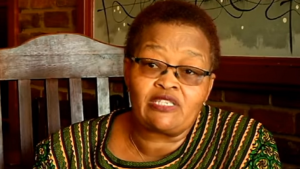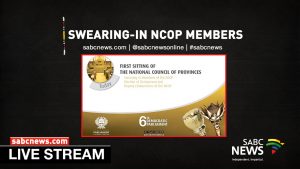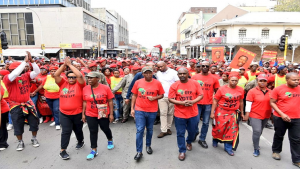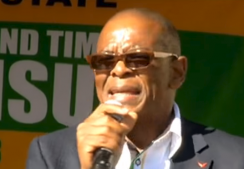The voting trend in the country’s Metros seems to confirm that the 2019 elections were a three-horse battle. While, 78 parties were vying for a place in the country’s nine provincial legislatures, the African National Congress (ANC), the Democratic Alliance (DA) and the Economic Freedom Fighters (EFF) are the parties that scored most votes in all the Metros – either ending up maintaining their provincial lead status or becoming the official opposition.
The ANC has managed to maintain its leadership status in eight of the country’s provinces, losing the Western Cape to the DA once again. The governing party’s absolute majority victory, although reduced, will allow it to govern eight provincial legislatures on its own – without coalition partners. There were fears prior to the poll that the ANC could lose its dominance in Gauteng to opposition parties – a move that many had said would have necessitated a coalition government.
A look at the Metro vote
A reflection of the will of the South African people can be seen in the voting pattern at the country’s eight Metropolitan Municipalities. The ANC performed best in the Eastern Cape’s Buffalo City – surpassing the 60% mark – landing at 66.53%.
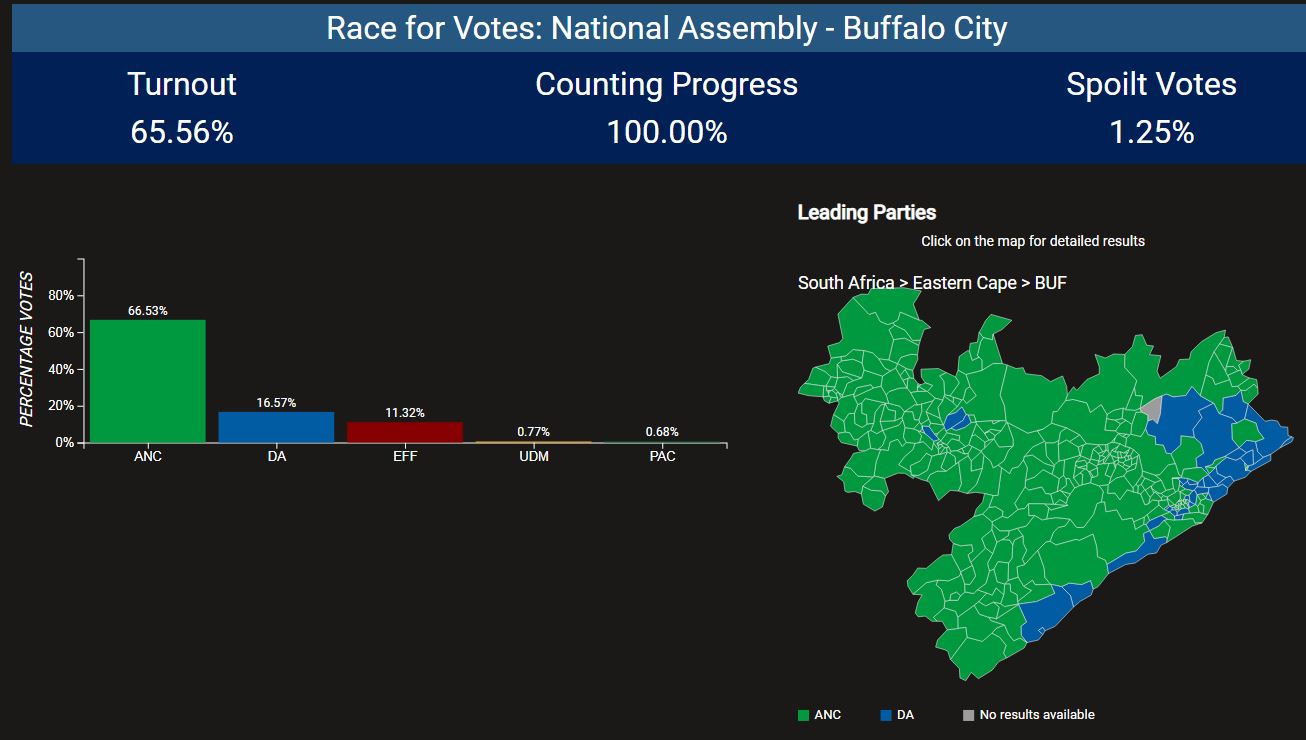
It also emerged stronger in Mangaung garnering 59.85% of the votes; Ekurhuleni with 55.19%; Ethekwini with 55.55%, in Tshwane it scored 49.56% of the votes and got 52.09% in Johannesburg. The party’s dwindling support in its former stronghold, the Nelson Mandela Bay, seems to continue. The ANC failed to reach 50% mark – wrapping up the race for votes with 46.93%. This was down from the 2014 poll in which the governing party clocked 48.5% of the votes. The party predictably lost the City of Cape Town to the Democratic Alliance (DA) yet again – landing with 30.53% of the votes only.
DA vote
The DA remains a strong party in all the Metros, trailing right behind the ANC – but closely followed by the Economic Freedom Fighters (EFF). It retained its stronghold of the Western Cape – making a strong showing in the City of Cape Town as expected.
The DA scored 52.97% of the votes in the city; 16.57% in Buffallo City; 25.88% in Tshwane; 26.24% in the City of Johannesburg; 23.13% in Ekurhuleni; 23.21% Ethekwini and 20.57% in Mangaung. It performed better in Nelson Mandela Bay – breaking the 30% mark – finishing the race with 37.92% of the votes.
EFF scoring big
The EFF didn’t disappoint expectations – growing its base in its second race in the country’s general elections. It’s grown from 6% to a little over 10%, adding seats in all the country’s 10 legislatures. It also ousted the DA as the official opposition party in Mpumalanga.
In the Metros – the red berets seem to be a firm favourite for the people of Gauteng, where it fared stronger than in all the other metros. The EFF walked away with 13.63% of votes cast in the City of Johannesburg; they scored 13.84% in Tshwane Metro; Ekurhuleni 13.14%; 11.64% in Ethekwini; 11.40% in Mangaung and 7.55% in the Nelson Mandela Bay.

Freedom Front Plus
Freedom Front Plus (FF Plus) was a surprise come back kid in these elections. The party, known and loathed by some for its right wing ideology, gained six seats in the National Legislature, ending up with just one seat shy away from the nine it had during the country’s first democratic elections.
Although it didn’t perform that well in most Metros – it gained two seats in the Gauteng Provincial Legislature having clinched 1.18% of votes in the City of Johannesburg; 6.86% in the Tshwane Metro; in Ekurhuleni it earned 3.59% of votes cast; 3.67% in Mangaung and 2.08% in Nelson Mandela Bay. 414 864 South Africans voted for the party in these elections, compared to the 165 715 votes it received in 2014.
What next?
The country’s President-elect has described the 2019 general elections as having been the most difficult. Now that it’s all done and dusted – focus has now shifted to President Cyril Ramaphosa’s inauguration, which will be followed by a cabinet announcement. Following the controversy that marred the governing party’s candidate list – many in the country are curious to see who will be in and who will be out.
The issue of the cabinet’s size is also one that South Africans will be watching closely. During his State of the Nation Address in February, President Ramaphosa mooted at plans to cut down the size of the national executive. The ANC’s head of elections, Fikile Mbalula, is quoted on Bloomberg saying the President-elect has the full backing of the governing party to reduce it.



